Precious rosewood laid in a fishbone pattern sets off this elegant case design, featuring stately chamfers and moulding complimented by a turned leg and lyre.
Avialable in the following sizes:
280 cm (Model 1)
238 cm (Model 2)
210 cm (Model 4)
190 cm (Model 6)
166 cm (Model 10)
154 cm (Model 11)
Experience the Golden Tone for yourself
Traditional German Craftsmanship
Finishes and Veneers
- Customise your Blüthner
- Aliquot Patent
- Inner Rim & Cross Beams
- Iron Frame
- Soundboard
- Pin Block and Bridge
- Hammers
- Action and Keyboard
Finishes and Veneers
Desks

Classic
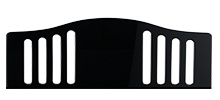
Jubilee
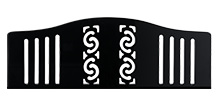
Kaiser
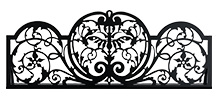
Julius
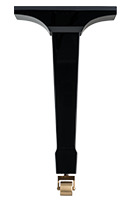
Classic
Legs
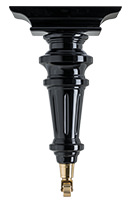
Jubilee
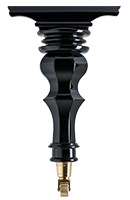
Julius
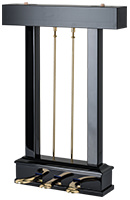
Classic
Lyre
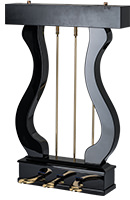
Jubilee
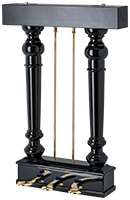
Julius
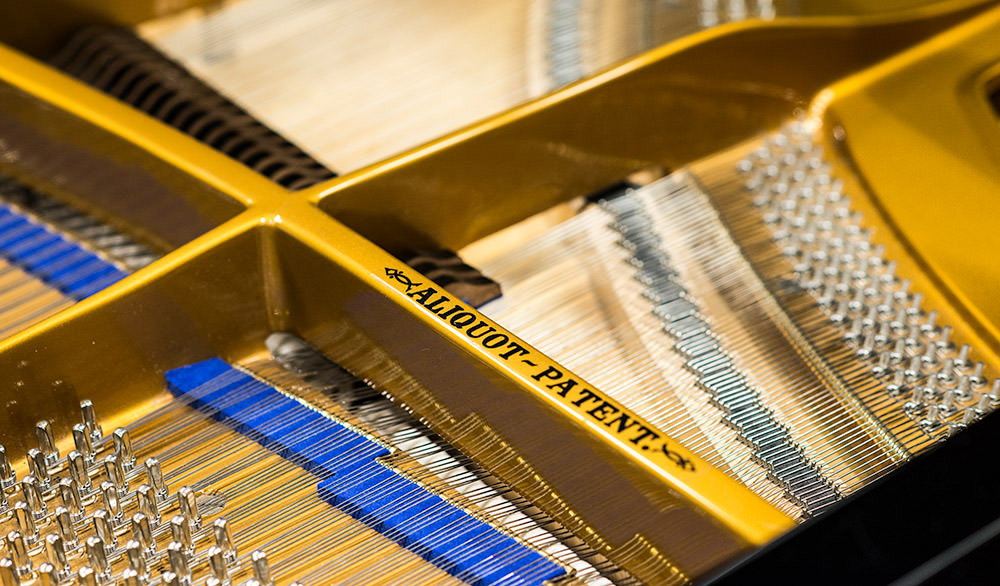
All Blüthner grand pianos (with the exception of the model 11, our smallest grand piano) are equipped with the Blüthner Aliquot patent. In the highest treble section of our grand pianos, each note is assigned a fourth string, which is slightly raised from the others and not struck by the hammerheads. The aliquot string resonates in unison with the note played, thereby amplifying it and creating a rich, warm and colourful sound. The system was developed by Julius Blüthner over a century and a half ago and is considered a key facet of the Blüthner Golden Tone.
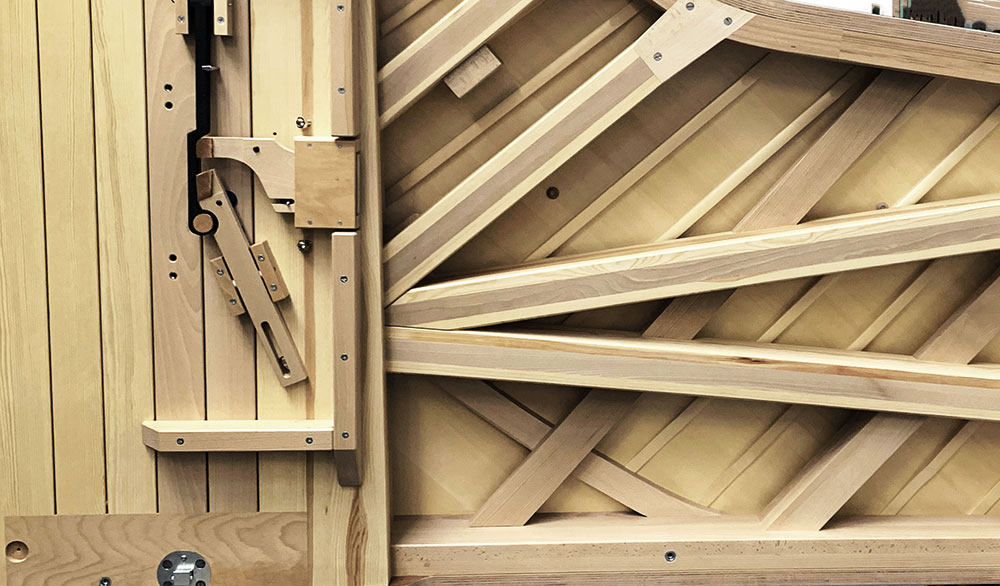
The inner rim construction, along with the cast iron frame, has to withstand enormous tension when an instrument is brought up to pitch. This tension is distributed from the inner rim structure to the cross beams. The cross beams are manufactured with a solid centre of Red Beech with German Pine laminated to each side, making it virtually impossible to allow movement caused by humidity changes. It also ensures a permanent and solid fit for the bolts of the iron frame. The necessary rigidity of the rim is achieved by a fan-like arrangement of the beams. The inner rim and beams on all Blüthner grand pianos are joined using the traditional dove-tail joint, which guarantees excellent durability.
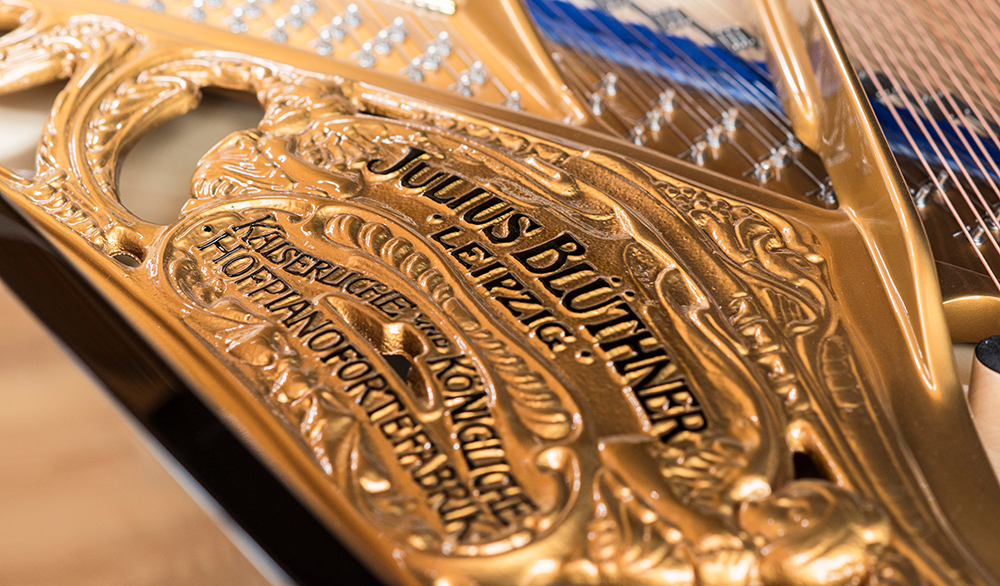
The iron frame is cast in a quartz sand mould using traditional methods. To withstand the enormous tension of nearly twenty tonnes, the design of each frame is precisely calculated and manufactured. Each frame is seasoned outside for two years before being sprayed to a high quality-finish and individually fitted to an instrument.
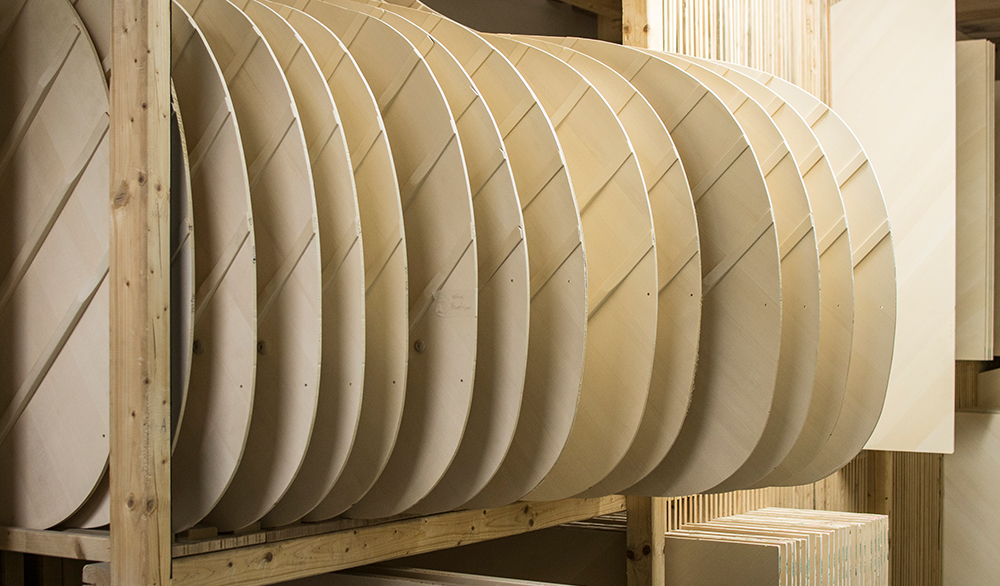
Only the finest White High Mountain Spruce from selected alpine stock with straight-running grain and at least seven annual rings per cm is used for the production of Blüthner soundboards. The shape of a Blüthner soundboard is unique — a cylindrical curve with a tension evenly matched to the strings. Before installation, it is seasoned for many years to ensure maximum resonance and durability, pre-tensioned and crowned in a process developed by Blüthner. The ribs are shaped to fit the curvature required and therefore, even under difficult climatic conditions, the tension of the soundboard remains intact over decades.
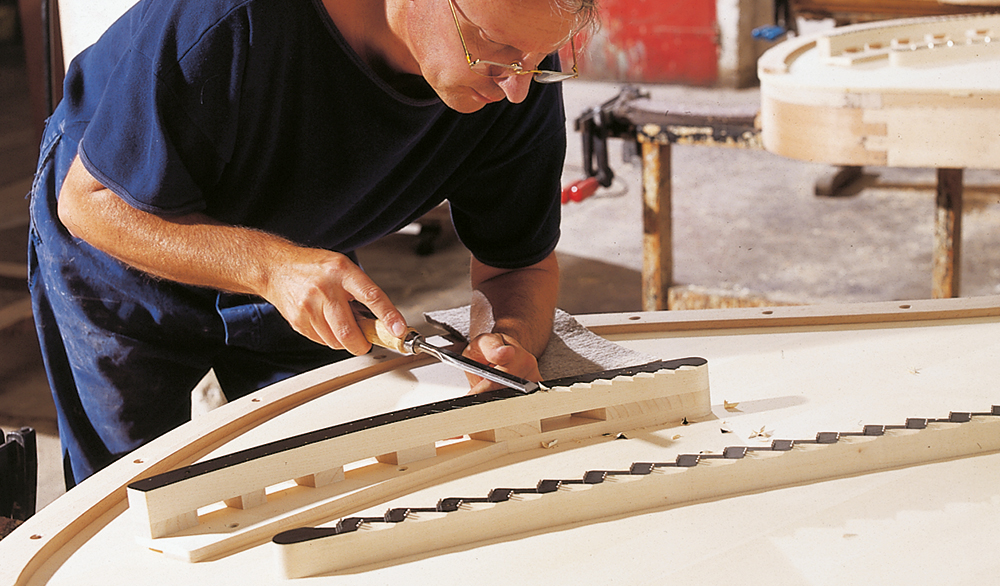
The bridge is adapted to the tension and curvature of the soundboard in its optimal position, ensuring that the full spectrum of the string vibrations is transferred to the soundboard. Both the bass and treble bridges are constructed from European Maple. The pin block or wrest plank is made of fourteen highly compressed hardwood layers cross-banded and glued at ninety degrees to the direction of the wood grain, securing the tuning pins on all sides for long-lasting tuning stability. Blüthner uses the additional support of a hardwood bushing where the tuning pin passes through the iron frame, which assists in reducing the bending load of the pin.
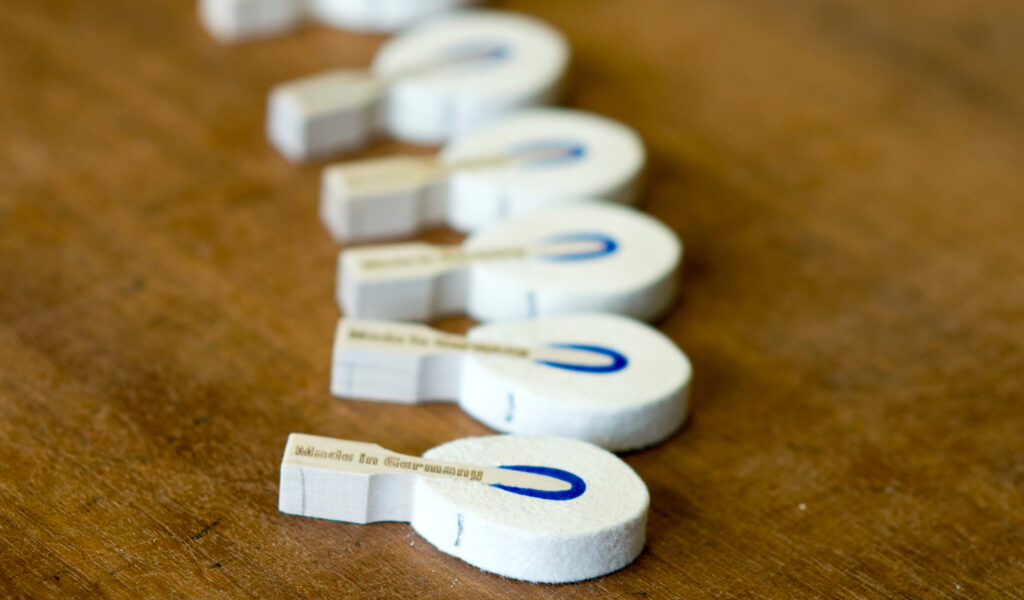
The hammerheads consist of a core made of white beech on upright pianos or walnut on grand pianos. This core is covered with a dense, hard-woven felt. The head of the hammer hits the strings and makes them vibrate. Our felts are processed in a complex cold-pressing process that optimally protects and preserves their valuable properties. The bright blue underfelt is recognisable in all Blüthner instruments.
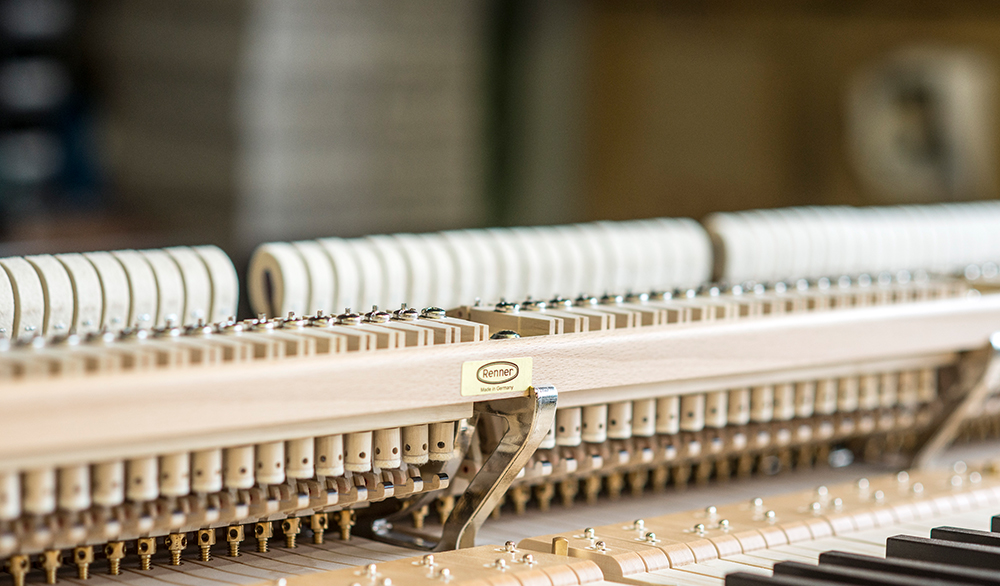
The keyboard is the component through which the pianist expresses their musicality and connects with the piano. With over five-and-a-half thousand moving parts within the action and damper structure alone, utmost precision is required to enable a responsive touch from gentle pianissimo to vigorous fortissimo, whilst retaining full control. To achieve excellent stability, the key bed is manufactured of alternate layers of Red Beech and German Pine, whereas the keys of our instruments are made of fine Bavarian Mountain Spruce and high-density Ebony. White key tops are made of acrylic. Height and depth of touch are meticulously weighted and adjusted for ultimate precision and control.
For Any Purchase, Rental Or Service Enquiries, Please Contact Us We Will Be Happy To Hear From You
